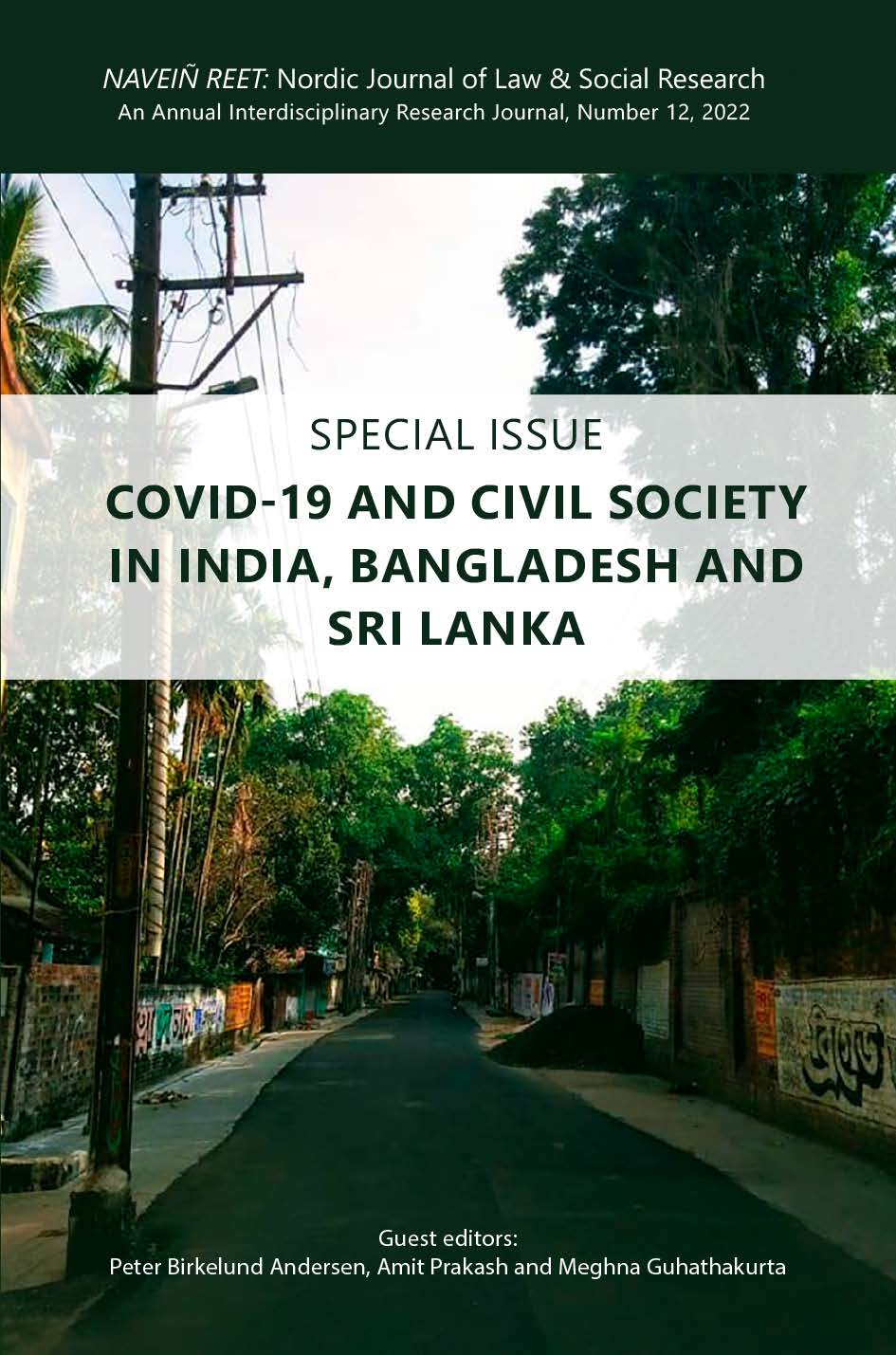Covid–19 and the Civil Societies of South Asia
Keywords:
Covid–19, South Asia, Civil Society Organisations, CSO, Neoliberal economy, Slovaj Žižek, Giorgio AgambenAbstract
This article presents the liberalisation of the economies of Pakistan, India, Bangladesh and Sri Lanka as having downscaled the degree of support for public health care and systems for the needy in the countries of South Asia. Civil society organisations (CSOs) stepped in. Still, they often could not establish sufficient funds to fill the gap and, in many cases, the governments suppressed CSOs and the media due to their critical voice. In many cases, CSOs have toned down such critical voices and limited themselves to improving specific social situations as such activities have been allowed and in some cases supported by the governments. The outbreak of Covid–19 led to ad hoc mobilisation of the civil society and temporary changes in the working situation. Despite this, most governments have limited ability of CSOs to work during the pandemic. In a larger perspective, Covid–19 has not created anything approaching the kind of neoliberal crises predicted by Slovaj Žižek, but the new level of restrictions introduced leads one to consider if they will be turned back after the pandemic, or if the restrictions will be retained, as predicted by Giorgio Agamben.
Downloads
Published
How to Cite
Issue
Section
License
Counting from number 12 (2022), articles published in NNJLSR are licensed under Attribution 4.0 International (CC BY 4.0). Readers are allowed to copy and redistribute the articles in any medium or format, to adapt and revise the articles, and use the articles for commercial purposes, provided that the readers give appropriate credits.
No Creative Commons licenses are applied on articles in number 1 (2009)-11 (2021). All rights reserved by the authors. Readers are allowed to download, read, and link to the articles published in volume 1 (2009)-11 (2021), but they may not republish or redistribute these articles without permission of the authors.

